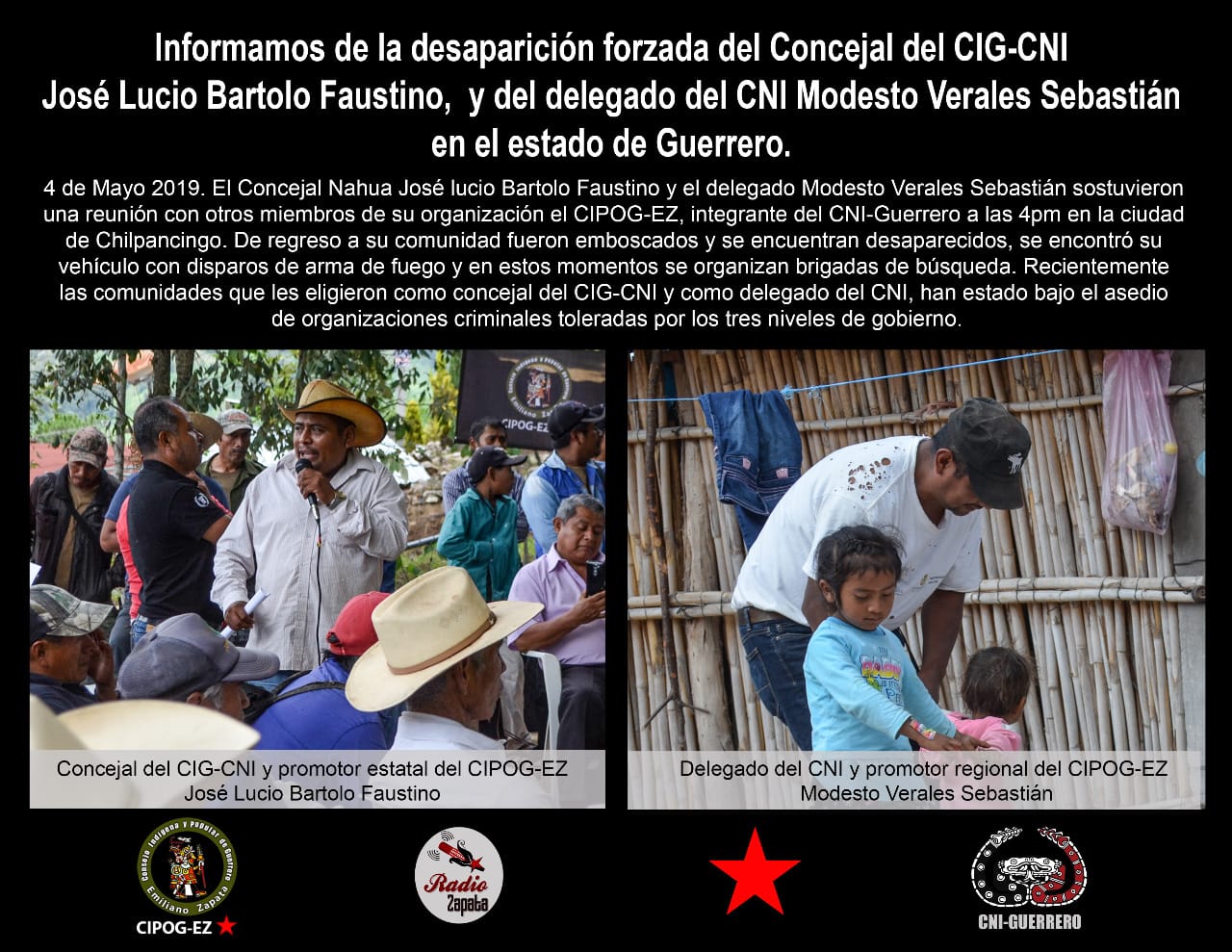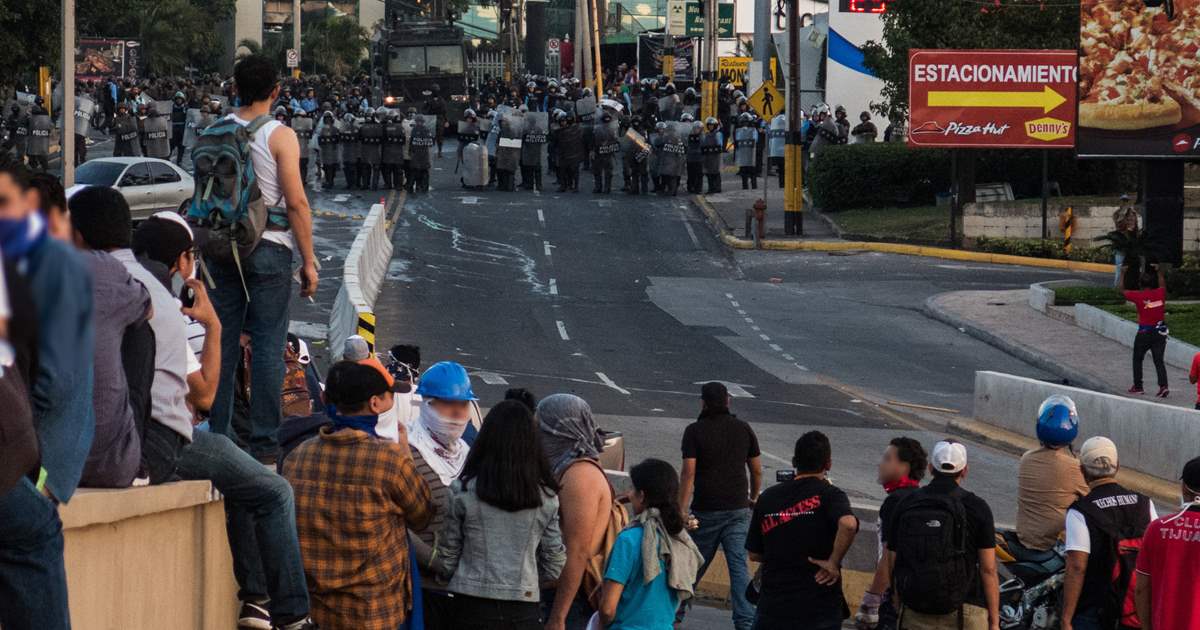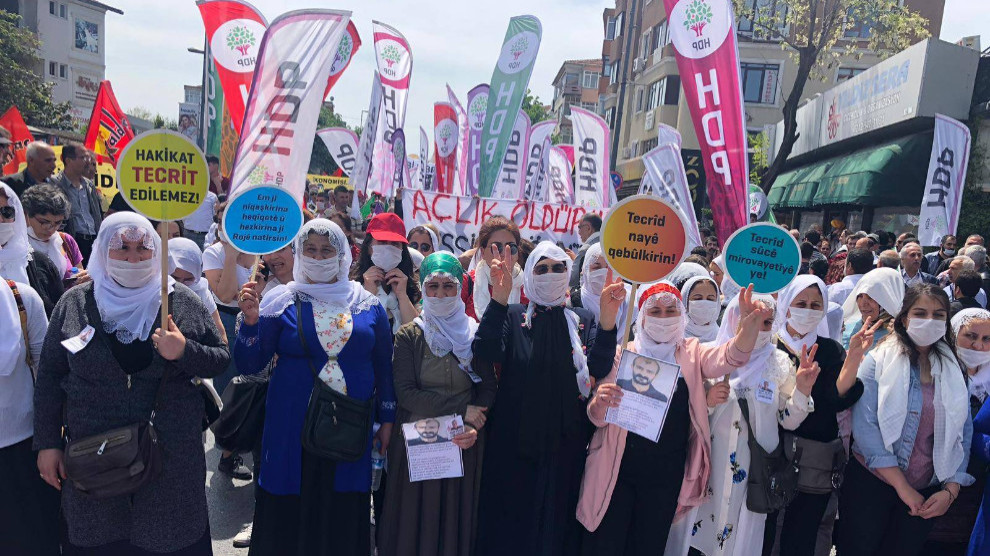
Mexico: double assassination of indigenous leaders
The Emiliano Zapata Popular and Indigenous Council of Guerrero (CIPOG-EZ) is calling upon the United Nations to investigate following the assassination of two leaders of the organization. The bodies of José Lucio Bartolo Faustino and Modesto Verales Sebastián were found in the town of Chilapa de Alvarez, where they had days earlier been abducted on a road by unknown gunmen. Both were leaders of the Nahua indigenous community in Chilapa municipality, had served as representatives to the National Indigenous Congress (CNI), and had promoted the 2017 presidential candidacy of María de Jesús Patricio Martínez, known as “Marichuy,” a Nahua woman who won the support of both the CNI and Mexico’s Zapatista rebels. Both were abducted when they were returning to their communities in outlying villages of Chilapa municipality from a meeting of indigenous leaders in the Guerrero state capital, Chilpancingo. (Image: Somos el Medio)




